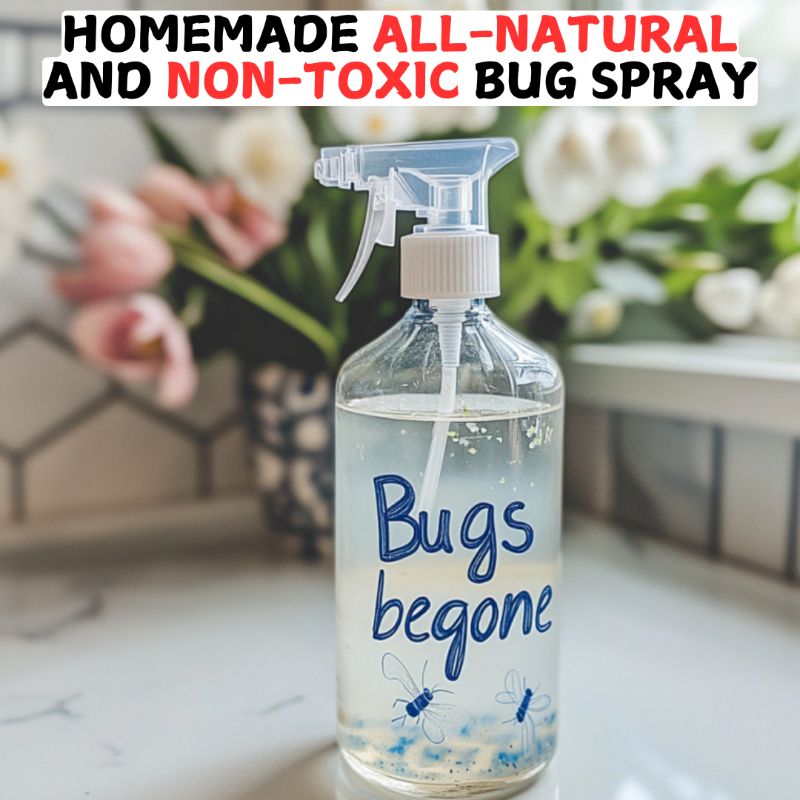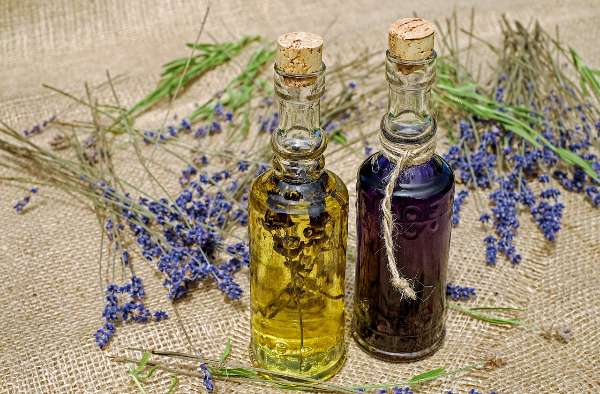Homemade All-Natural And Non-Toxic Bug Spray

Make sure to like Living Green and Frugally on Facebook, Shop at Amazon to help support my site and explore our PINTEREST BOARDS for innovative ways you can become self-sufficient.
As the weather warms up and we spend more time outdoors, the inevitable arrival of pesky bugs can put a damper on our enjoyment. Whether you’re hosting a backyard barbecue, tending to your garden, or simply enjoying a stroll through the park, encountering mosquitoes, flies, and other insects is often unavoidable. Many commercial bug sprays are laden with chemicals that can be harmful to our health and the environment. Thankfully, there’s a safer alternative: homemade all-natural and non-toxic bug spray!
Why Choose All-Natural Bug Spray?
Opting for homemade bug spray not only gives you control over the ingredients, ensuring they are safe for you and your loved ones, but it also benefits the environment by reducing chemical pollutants. Essential oils like citronella, peppermint, and eucalyptus are known for their insect-repelling properties and can be combined with other natural ingredients to create an effective solution. Plus, making your own bug spray is cost-effective and easy!
Tips for Using Natural Bug Spray
- Choose Quality Ingredients: Use high-quality essential oils, as they have stronger insect-repelling properties. Look for organic options when possible.
- Test for Skin Sensitivity: Before applying any new mixture on your skin, conduct a patch test to check for allergic reactions. Simply apply a small amount on your inner arm and wait 24 hours.
- Shake Before Use: Natural ingredients can separate over time, so be sure to shake the bottle well before each use to ensure an even distribution.
- Store Properly: Keep your bug spray in a cool, dark place to prolong its shelf life. Essential oils can degrade in direct sunlight.
- Reapply as Needed: Natural bug sprays may not last as long as their chemical counterparts, so be prepared to reapply every couple of hours, especially during heavy outdoor activities.
Homemade All-Natural Bug Spray Recipe
Ingredients
- 1 cup of witch hazel or vodka: Acts as a base and helps the oils mix.
- 1 cup of water: Dilutes the solution.
- 20-30 drops of essential oils: Choose from the following for their bug-repelling properties:
- Citronella oil
- Peppermint oil
- Eucalyptus oil
- Lavender oil
- Tea tree oil
- 1 tablespoon of vegetable glycerin (optional): Helps the mixture adhere to your skin.
Instructions
- Combine Ingredients: In a spray bottle, combine the witch hazel or vodka with water. If using, add the vegetable glycerin.
- Add Essential Oils: Drop in your chosen essential oils, adjusting the quantity based on your scent preference and desired potency.
- Shake Well: Secure the lid and shake the bottle vigorously to mix the ingredients.
- Label and Store: Label your bug spray with the date and ingredients, then store it in a cool, dark place.
- Use: Spray generously on exposed skin and clothing, avoiding the face. Reapply as needed, especially after swimming or sweating.
Common Questions and Answers
Q: How long does homemade bug spray last?
A: When stored properly in a cool, dark place, your homemade bug spray can last up to 1 month. Always check for any changes in smell or color before use.
Q: Can I use this spray on my pets?
A: While some essential oils are safe for pets, others can be harmful. It’s best to consult your veterinarian before using any homemade bug spray on your furry friends.
Q: Is this bug spray effective against all types of bugs?
A: This homemade bug spray is effective against many common insects like mosquitoes, flies, and ticks. However, results may vary, and reapplication may be necessary.
Q: Can I use this spray indoors?
A: Yes! This natural bug spray can be used indoors, but ensure proper ventilation, especially if using strong-smelling essential oils.
Q: Are there any alternatives to essential oils?
A: If you prefer not to use essential oils, you can try using vinegar or lemon juice. However, keep in mind that these alternatives may not be as effective against all insects.
Conclusion
Creating your own homemade all-natural and non-toxic bug spray is an eco-friendly and health-conscious choice. With just a few simple ingredients, you can keep those pesky bugs at bay without compromising your safety or the environment. Enjoy your outdoor activities this season with peace of mind, knowing that you’re protected by a gentle yet effective solution. Happy bug-free adventures!
